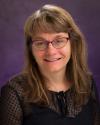NAMES Project AIDS Memorial Quilt in front of Washington monument, D.C., first displayed in 1987. To learn more and explore all 48,000 panels of the quilt online, see here. Image credit: National Institute of Health, Wikipedia.
Welcome! This course examines the AIDS epidemic as a key historical event in twentieth- and twenty-first-century global history. Beginning with the first recognized AIDS patients in the 1980s, we will move back in time, considering histories of illness and inequality that enabled the epidemic to have devastating and uneven effects. We'll then move forward in time, from the 1980s to the present day, to explore how politics of sexuality, class, citizenship and race shaped responses to the epidemic by governments and communities, and, how HIV/AIDS gave rise to new forms of activism, research, and philanthropy. Geographically, the course will focus on the United States and Eastern and Southern Africa but we'll spend time examining the epidemic in the Caribbean, China, and Europe as well. We'll also explore comparisons and connections between the AIDS and COVID-19 pandemics.
Assignments will include a mini oral history podcast project and two quizzes. Options for final projects will include an 8-minute research podcast, a research essay, and research for the AIDS Memorial Parkway (AMP) Project in Seattle's Capitol Hill. "W" credit will be optional.
Readings will include one book, the very powerful Second Chances: Surviving AIDS in Uganda edited by Susan Reynolds Whyte, and various articles, book chapters, podcasts, and videos. Second Chances is available for purchase at the University Bookstore and as an e-book through UW Libraries. All of the articles and book chapters will be posted as pdfs to our Canvas course website.
I, Professor Lynn M. Thomas, co-developed this course with my awesome colleagues Professor Laurie Marhoefer and PhD Graduate Student Taylor Soja. I'll be the main instructor for this spring's course but Professor Marhoefer will lead one of the class sessions. We'll also have some other great guest lecturers.
HSTCMP248 will meet in-person in Sieg 134 between 10:30 and 12:20 (PST, Seattle time) on Tuesdays and Thursdays. Attending class in person is important because we'll be doing work in small groups to prepare for graded individual assignments and some in-class presentations. Such work, I believe, helps to build a strong learning community. I plan to record class sessions in Zoom just in case something unexpected comes up -- such as an illness, quarantine, or a family emergency -- and a student has to miss class. In that case, you'll be able to watch the recording to catch up. If you know now, however, that you won't be able to attend class sessions in person, this course won't be a good fit for you.
Hope to see you in class on March 29th!
